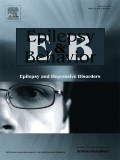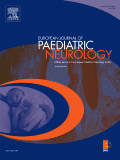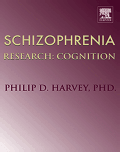
Epilepsy & Behavior Reports
Scope & Guideline
Advancing Knowledge in Epilepsy and Behavioral Science
Introduction
Aims and Scopes
- Clinical Management of Epilepsy:
The journal emphasizes research on the clinical management strategies for epilepsy, including pharmacological interventions, surgical options, and novel treatment modalities. - Comorbidities and Psychosocial Aspects:
It explores the relationship between epilepsy and various comorbid conditions such as psychiatric disorders and cognitive impairments, highlighting the need for comprehensive care. - Innovative Therapeutic Approaches:
There is a focus on emerging therapies, including neuromodulation techniques, dietary interventions, and pharmacogenomics, offering insights into personalized medicine for epilepsy patients. - Neurobiological Mechanisms:
Research on the underlying neurobiological mechanisms of epilepsy is prevalent, including studies on genetic, structural, and functional aspects of epilepsy. - Patient-Centered Research:
The journal promotes studies that incorporate patient perspectives, quality of life assessments, and the impact of epilepsy on daily functioning. - Technological Advances in Diagnosis and Treatment:
It showcases advancements in diagnostic techniques such as EEG and neuroimaging, as well as the application of artificial intelligence and telehealth in managing epilepsy.
Trending and Emerging
- Telemedicine and Remote Monitoring:
The integration of telemedicine in epilepsy management has gained traction, particularly in the context of the COVID-19 pandemic, showcasing the importance of remote consultations and monitoring. - Psychosocial Impact and Quality of Life:
There is an increasing focus on the psychosocial dimensions of epilepsy, including studies on anxiety, depression, and the overall quality of life of patients, which emphasize holistic approaches to care. - Comorbid Conditions and Multidisciplinary Care:
Research on the interplay between epilepsy and comorbidities, such as ADHD and psychiatric disorders, is becoming more prominent, underscoring the need for multidisciplinary treatment strategies. - Advanced Neurostimulation Techniques:
Emerging studies on advanced neurostimulation techniques, including deep brain stimulation and vagus nerve stimulation, are gaining attention as potential treatment options for drug-resistant epilepsy. - Genetic and Molecular Insights:
The exploration of genetic factors and molecular mechanisms underlying epilepsy is trending, reflecting a shift towards understanding individual variability in treatment responses. - Patient Engagement and Shared Decision-Making:
Research focusing on patient preferences, engagement in treatment decisions, and shared decision-making processes is on the rise, highlighting the importance of patient-centered care.
Declining or Waning
- Traditional Pharmacological Studies:
There is a noticeable decrease in studies solely focused on traditional antiseizure medications, possibly due to the increasing emphasis on personalized medicine and novel therapies. - Basic Science Research on Epileptogenesis:
Research purely focused on the basic science of epileptogenesis has waned, as the journal increasingly prioritizes translational studies that connect basic science to clinical applications. - Single Case Reports:
The prevalence of isolated case reports seems to be declining, with a shift towards larger cohort studies and multicenter trials that provide more robust data. - Epidemiological Studies without Intervention Focus:
Epidemiological studies that do not explore intervention strategies or patient outcomes are less frequent, indicating a trend towards studies that aim for actionable insights.
Similar Journals

Zeitschrift fur Epileptologie
Enhancing understanding of epilepsy through research.Zeitschrift fur Epileptologie is a vital resource in the field of neurology and pediatric healthcare, published by Springer Heidelberg. With its ISSN 1617-6782 and E-ISSN 1610-0646, the journal focuses on the latest research and clinical practices pertaining to epilepsy, catering to an audience that includes researchers, clinicians, and students. Although it currently holds a Q4 ranking in both Neurology (clinical) and Pediatrics categories, the journal's commitment to disseminating key findings and enhancing understanding in these fields positions it as an important contributor to ongoing discussions around epilepsy management and child health. The journal has published continuously from 2005 to 2022, offering both traditional and open-access viewing options that increase its accessibility to a global audience. By maintaining an emphasis on high-quality research, Zeitschrift fur Epileptologie strives to improve patient care and embrace innovations in treatment methodologies.

Neurological Sciences and Neurophysiology
Advancing knowledge in neurology and neurophysiology.Neurological Sciences and Neurophysiology, published by Wolters Kluwer Medknow Publications, serves as a pivotal platform for dissemination and discussion of recent advancements and research in the fields of neurology and neurophysiology. Since its transition to an Open Access format in 2020, this journal aims to enhance accessibility to crucial developments in neurological sciences for researchers, professionals, and students alike. With an ISSN of 2636-865X, it seeks to bridge the gap between clinical practice and experimental science, promoting innovative approaches to neurological disorders. While currently ranked in the Q4 quartile in the Neurology category, the journal is committed to improving its standing through rigorous peer review and publication of high-quality research. The journal's scope encompasses a wide range of topics, ensuring that it appeals to a diverse audience, while its Scopus ranks indicate its emerging presence in the global scientific community. Located in Mumbai, India, the journal welcomes contributions that push the boundaries of our understanding of the nervous system, making it a vital resource for scholars in this dynamic field.

NEUROPSYCHOPHARMACOLOGY
Elevating Understanding through Rigorous Research and ReviewNEUROPSYCHOPHARMACOLOGY is a prestigious academic journal dedicated to advancing our understanding of the intricate relationship between psychiatric disorders and pharmacological treatments. Published by SpringerNature in the United Kingdom, this leading journal has been a cornerstone in the field since its inception in 1987, with a converged publication timeline extending to 2024. With a remarkable impact factor and illustrious rankings—being positioned 19th in Psychiatry and Mental Health and 16th in Pharmacology—NEUROPSYCHOPHARMACOLOGY is recognized for its rigorous peer-reviewed research that informs clinical practice and enhances therapeutic interventions. The journal is classified in Q1 quartile categories for both Pharmacology and Psychiatry and Mental Health, highlighting its commitment to excellence. Researchers, professionals, and students are encouraged to contribute to this vital dialogue, as the journal does not currently offer open access, emphasizing the importance of curated, high-quality content. By publishing innovative studies and reviews, NEUROPSYCHOPHARMACOLOGY plays a crucial role in shaping the future of mental health treatments and understanding neurobiological mechanisms, making it an indispensable resource for those at the forefront of psychiatric research.

EPILEPSY & BEHAVIOR
Transforming knowledge into solutions for epilepsy and behavior.EPILEPSY & BEHAVIOR is a premier journal dedicated to advancing the field of neurology and behavioral neuroscience, published by Academic Press Inc. Elsevier Science. With a focus on the complex interplay between epilepsy and behavioral disorders, this journal serves as a pivotal platform for researchers, clinicians, and educators alike. The journal holds a commendable position with a Q2 ranking in key categories such as Behavioral Neuroscience and Clinical Neurology, highlighting its influence and contributions to the scientific community. Notably, EPILEPSY & BEHAVIOR is indexed in Scopus, ranking in the top percentiles across various related fields, which underscores the quality and relevance of the research it publishes. As it navigates from its inception in 2000 to its ongoing work into 2024, the journal remains committed to disseminating high-quality research and insights that address critical issues in epilepsy and associated behavioral challenges, providing invaluable resources for ongoing education and innovation in the field.

EUROPEAN JOURNAL OF PAEDIATRIC NEUROLOGY
Exploring the complexities of child neurological health.European Journal of Paediatric Neurology, published by Elsevier Science Ltd, is a premier academic journal dedicated to advancing the field of paediatric neurology. With its ISSN 1090-3798 and E-ISSN 1532-2130, this journal serves as a vital resource for researchers, clinicians, and students alike, focusing on the latest findings and innovative treatments in paediatric neurological disorders. The journal has established itself as a leading publication in its field, achieving a Q1 classification in Pediatrics, Perinatology and Child Health, and holding a reputable Q2 status in Clinical Neurology as of 2023. Positioned within the top 88th percentile in Pediatrics and the 76th percentile in Clinical Neurology according to Scopus ranks, it publishes rigorous peer-reviewed articles that contribute significantly to clinical practice and research. Although not open access, the journal provides vital insights into the complexities of neurological conditions affecting the pediatric population, making it an essential tool for scholars and professionals striving to improve child health outcomes. With a publication trajectory spanning from 1997 to 2024, it continues to be at the forefront of paediatric neurological research, inspiring innovation and collaboration in the scientific community.

NEUROLOGY
Pioneering insights in the realm of neurology.NEUROLOGY, published by Lippincott Williams & Wilkins, stands as a premier journal in the field of neurology, holding an esteemed Q1 category ranking in clinical neurology as of 2023. Established in 1951, this journal has been a critical resource for the dissemination of cutting-edge research and clinical advancements, with an impressive Scopus rank of 24 out of 400, placing it in the 94th percentile among its peers. NEUROLOGY serves as a vital platform for neurologists, researchers, and medical professionals seeking to stay abreast of the latest findings and innovations in the treatment and understanding of neurological disorders. With its rigorous peer-review process and commitment to excellence, NEUROLOGY remains essential reading for all individuals dedicated to advancing the science and practice of neurology, contributing significantly to the ongoing dialogue in this vital area of medicine.

Clinical Epileptology
Unlocking the complexities of epilepsy through collaboration.Clinical Epileptology, published by Springer Heidelberg, is an emerging open-access journal that aims to advance the understanding of epilepsy through rigorous research and clinical studies. With an ISSN of 2948-104X and E-ISSN of 2948-1058, this journal serves as a vital platform for researchers, clinicians, and students within the fields of Neurology, Pediatrics, and Perinatology. Although still in its formative years, spanning from 2023 to 2024, the journal aspires to fill the knowledge gaps in epilepsy research, thereby improving patient outcomes. Despite its initial Scopus rankings placing it within the 12th and 19th percentiles in respective categories, Clinical Epileptology is poised to make a significant impact by fostering interdisciplinary collaboration and disseminating high-quality findings. With options for open access, this journal ensures that groundbreaking research is readily available to a global audience, encouraging the ongoing dialogue that is crucial to advancing the field. Intended for a diverse readership, including academic researchers, healthcare professionals, and students, Clinical Epileptology is committed to becoming a cornerstone of epilepsy research.

Epilepsia Open
Leading the way in open access epilepsy scholarship.Epilepsia Open is a premier open access journal dedicated to advancing the field of neurology, particularly in the area of epilepsy research and clinical practice. Published by WILEY since 2016, this journal aims to provide a platform for high-quality, peer-reviewed research that fosters collaboration among researchers, clinicians, and educators within the global neurological community. With an impactful presence in the field, it holds a prestigious Q2 ranking in both Neurology and Clinical Neurology categories as of 2023 and has been recognized for its contributions to the understanding of epilepsy through its diverse range of articles, reviews, and clinical studies. Researchers and practitioners can benefit from the journal's open access model, which ensures that valuable findings are readily available to the public, promoting further developments in treatment and care. The journal's significant visibility is reflected in its Scopus rankings, where it ranks in the top half of peer-reviewed journals in both Neurology and Neuroscience categories. For those committed to improving the lives of those affected by epilepsy, Epilepsia Open represents a crucial resource for cutting-edge knowledge and innovative practices.

Neurology Research International
Advancing the Frontiers of Neurology ResearchNeurology Research International, published by HINDAWI LTD, is an esteemed open access journal that has been serving the neurology community since 2010. With its ISSN 2090-1852 and E-ISSN 2090-1860, this journal aims to foster knowledge dissemination and facilitate dialogue surrounding key issues in neurology and clinical neuroscience, making it a vital resource for researchers, clinicians, and students alike. It operates from the United States, with its administrative hub located in London, England. As of 2023, the journal has been positioned in the Q3 category for both neurology and clinical neurology, reflecting its commitment to advancing research within these critical fields. With a current Scopus rank of #216/400 in clinical neurology and a #113/192 in neuroscience, and a converged publication timeline from 2010 to 2024, Neurology Research International is dedicated to promoting high-quality research that addresses contemporary challenges and innovations in neurological science. By offering open access since its inception, it ensures that cutting-edge research is freely available, aligning with the global push towards accessible scientific communication.

Schizophrenia Research-Cognition
Advancing understanding in schizophrenia cognition.Schizophrenia Research-Cognition is an esteemed journal dedicated to advancing the understanding of cognitive aspects of schizophrenia and related mental health disorders. Published by Elsevier, this Open Access journal has been a pivotal platform since its inception in 2014, facilitating the dissemination of high-quality research findings to a global audience. With a notable impact factor and categorized in the Q2 quartile for both Cognitive Neuroscience and Psychiatry and Mental Health, it ranks among the top journals in these fields, currently positioned at #171 out of 567 in Psychiatry and at #40 out of 115 in Cognitive Neuroscience according to Scopus metrics. Located in the United States, and published under the auspices of Elsevier, the journal aims to provide an insightful forum for researchers, clinicians, and students interested in the cognitive underpinnings of schizophrenia, promoting innovative research that bridges the gap between cognitive neuroscience and clinical application. Schizophrenia Research-Cognition's commitment to open access ensures wide-reaching impact and engagement from the research community and beyond.